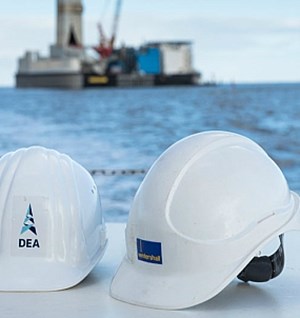Wintershall: German industry must be able to benefit from CCS technology
(BERLIN) — Even though energy consumption fell in Germany in 2022, emissions still rose. “If Germany is to achieve the climate goals it has set for itself in the years ahead, we will need a wide range of technologies and solutions,” said Klaus Langemann, SVP Carbon Management and Hydrogen at Wintershall Dea, at the Handelsblatt Energy Summit in Berlin.
“In addition to expanding renewable energies and rapidly establishing a hydrogen market, the early capture of CO2 emissions in production processes and their subsequent storage will also be able to make an important contribution to achieving our climate targets while safeguarding jobs in energy-intensive industries at the same time.”
Unavoidable residual emissions in Germany currently amount to well over 40 million tonnes per year, particularly from industries such as those for chemicals and cement, as well as from agriculture.
CCS for Germany: words must be backed up by action
German policymakers have now come to recognize the potential of CCS. In an evaluation report on the Carbon Dioxide Storage Act, Germany’s Federal Ministry for Economic Affairs and Climate Action (BMWK) recently noted that the country would have to safely store up to 73 million tonnes of CO2 each year under the seabed if it is to achieve net zero by 2045.
However, there are still legal hurdles in Germany to transporting carbon dioxide to storage sites outside the country. “Words must be backed up by action,” Langemann continued. “Germany should ratify the amended Article 6 of the London Protocol as soon as possible so as to allow CO2 to be transported to neighboring countries. On top of that, bilateral agreements must be concluded with CO2-receiving countries.” Denmark and Belgium signed an agreement of this kind in October 2022. Germany could also follow this example in order to remain competitive as an industrial powerhouse.
Wintershall DEA participating in CCS projects in Denmark and Norway
In Denmark, CO2 will be stored underground for the first time ever in the coming weeks as part of the Greensand project – a milestone for Europe’s climate policies. Wintershall Dea is a partner in the Greensand project, which will see the entire CSS value chain realized across borders to an offshore storage site for the first time on the European continent.
More precisely, CO2 from industrial processes in Antwerp is to be transported to Denmark and stored under the seabed about 200 km off the Danish coast.
In addition to Denmark, Wintershall Dea is also pursuing CCS-related projects in Norway, focusing on establishing cross-border CCS value chains. To make these projects accessible to German industry, Wintershall Dea is planning to jointly establish CO2nnectNow, a CO2 hub in Wilhelmshaven on the North Sea coast.
Unavoidable CO2 from German industrial sites is to be captured and transported to the planned CO2nnectNow hub. From there, the CO2 is to be transported – initially by ship, but later by pipeline – from Germany’s only deep-water seaport to geological formations in the Norwegian and Danish North Sea, where it will be permanently and safely stored.



